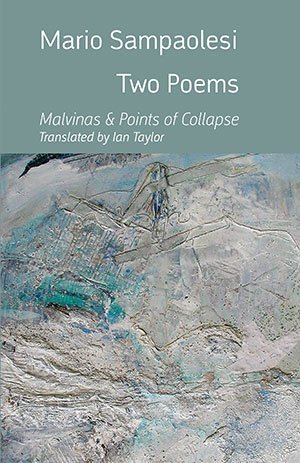Shearsman Store
BOOKS
Latest Releases
Poetry
2026 Titles
2025 Titles
2024 Titles
2023 Titles
2022 Titles
2021 Titles
British Titles
Irish Titles
North American Titles
Australian & NZ Titles
Indian Titles
Translations
Latin American Titles
Titles from Spain
Classics
Shearsman Library
Anthologies
Essays / Criticism
Chapbooks
Prose
Old Guard Press
Distributed Titles
Special orders
AUTHORS
Authors A to C
Abiz, Alireza
Adams, Seren
Adès, Timothy
Adilow, Alara
Aguilar, Luis Miguel
Akhmatova, Anna
Akhtar, Sascha Aurora
Alcalá, Rosa
Allen, Arthur
Allen, Tim
Anderson, Martin
Angwin, Roselle
Anonymous
Apollinaire, Guillaume
Arvelo Torrealba, Alberto
Ashton, Kate
Atkins, Marc
Ayres, Michael
Bachman, Merle Lyn
Back, Rachel Tzvia
Bagoo, Andre
Baker, Alan
Balmer, Josephine
Baranda, María
Barnas, Maria
Barone, Dennis
Bastelaere, Dirk van
Batur, Enis
Baxt, Ellen
Beake, Fred
Beck, Art
Becker, Jürgen
Bécquer, Gustavo Adolfo
Berengarten, Richard
Bell, James
Berk, Ilhan
Birchard, Guy
Black, Linda
Blank, Debby Jo
Bletsoe, Elisabeth
Blonstein, Anne
Bolton, Ken
Booth, Martin
Boyle, Peter
Bradshaw, Joseph
Bramness, Hanne
Breen, Daragh
Brewerton, Andrew
Breyger, Yevgeny
Brinton, Ian
Brown, Andy
Brown, Pam
Browning, Robert
Buckheit, Melissa
Bugan, Carmen
Burn, Sean
Caddy, David
Čaks, Aleksandrs
Caleshu, Anthony
Camões, Luis Vaz de
Cansever, Edip
Capildeo, Vahni
Carew, Thomas
Cârneci, Magda
Carpenter, J.R.
Castaño, Yolanda
Castro, Rosalia de
Cavafy, C.P.
Cave, Sarah
Cebreiro, Maria do
Cebrián, Mercedes
Celestine, Alfred
Chanda, Avik
Chaudhuri, Amit
Chávez, Jorge Humberto
cheek, cris
Chernoff, Maxine
Chudleigh, Lady Mary
Cisneros, Antonio
Clariond, Jeannette
Clark, Tom
Clarke, Adrian
Clarkson, Geraldine
Claudel, Paul
Clement, Jennifer
Coghill, Mary
Cole, Peter
Coleridge, Mary
Connolly, Susan
Copeland, Brooklyn
Corcoran, Kelvin
Corless-Smith, Martin
Corlett, Rosemarie
Critchley, Emily
Cronin, M.T.C.
Cross, Elsa
Crowe Serrano, Anamaría
Crowther, Claire
Crozier, Andrew
Crucefix, Martyn
Cuadra, Pablo Antonio
Authors D to G
Daniels, Chris
Daly, Catherine
Davidson, Ian
Davidson, Lynn
De Marchi, Pietro
de Rokha, Pablo
de Rokha, Winétt
Debney, Patricia
Deeny Morales, Anna
Deming, Richard
Dent, Peter
Dentz, Shira
Dickey, Laressa
Dickinson, Mark
Diego, Gerardo
Doce, Jordi
Docherty, Tom
Doerr, Joe
Donahue, Joseph
Donis, Giacomo
Donne, John
Dooley, Terence
Dorn, Edward
Draesner, Ulrike
Du Fu
Duffy, Nikolai
Duggan, Laurie
Duncan, Andrew
Dyckman, Susanne
Echavarren, Roberto
Economou, George
Edwards, Ken
Elenkova, Tsvetanka
Ely, Steve
Enslin, Theodore
Eriksson, Helena
Espmark, Kjell
Etter, Carrie
Evans Bauer, Amy
Evans, Paul
Farrell, Patricia
Faust, Clive
Fellows, Gerrie
Ferencuhová, Maria
Finch, Peter
Fine, Aidan
Finkelstein, Norman
Finlay, Alec
Finlayson, Keri
Firestone, Jennifer
Fisher, Allen
Fisher, Roy
Forrest-Thomson, Veronica
Fowler, S.J.
France de Bravo, Brandel
Frank, Edwin
Frank, Jane
Frazer, Tony
Freind, Bill
Frew, Hazel
Fryatt, Kit
Fulcher, Tamara
Fulton Macpherson, Robin
Furniss, Damian
Futoransky, Luisa
Gaffield, Nancy
Galbraith, Iain
Gander, Forrest
Gardner, Angela
Gaynor, Fergal
Gearen, Cameron
Georges, Richard
Gervitz, Gloria
Gianuzzi, Valentino
Glazova, Anna
Goar, Jim
Goethe, Johann Wolfgang von
Goldhagen, Juergen
Goodby, John
Goodland, Giles
Goodwin, Mark
Gorrick, Anne
Gray, Thomas
Green, Paul A.
Greenslade, David
Gromadzki, Derek
Grossman, Hagit
Grubb, David H. W.
Guess, Carol
Guest, Harry
Guilar, Liam
Gutkind, Christopher
Authors H to K
Hadari, Atar
Hadbawnik, David
Hajdari, Gezim
Hakim, Khaled
Hales, Catherine
Hall, John
Halsey, Alan
Hamilton, Lucy
Hampson, Robert
Harrison, Lesley
Harrison, Martin
Harwood, Lee
Haslam, Michael
Haw, Matt
Hawkins, Ralph
Hawley, Anthony
Hedeen, Kathleen M.
Heller, Michael
Henderson, Jennifer Morag
Hennemann, Christina
Herbert, W.N.
Herd, David
Herrera, Fernando de
Herrick, Robert
Hertmans, Stefan
Hill, Barry
Hjelmgaard, Lynne
Ho, Tammy Lai-Ming
Hoffman, Eric
Holman, Paul
Holmes, Janet
Holton, Brian
Homan, Brandi
Hooker, Jeremy
Hoover, Paul
Hopkins, Gerard Manley
Huchel, Peter
Hughes, Peter
Huidobro, Vicente
Hummelt, Norbert
Infante, Judith
Ingelmo, Luis
Islam, Nazifa
Jackson, W. D
Jacob, Max
Jaeger, Peter
Jaffin, David
James, John
Jana, Juli
Janssen, Sasja
Johnson, David Hackbridge
Johnson, Kent
Jope, Norman
Jordan, Andrew
Joyce, Trevor
József, Attila
Juhász, Ferenc
Kandinsky, Vasily
Kasid, Abdulkareem
Kavounas, Alice
Kelder, Cralan
Kennedy, Andrew Karpati
Kennedy, David
Kent, Aaron
Khursheed, Bridget
Kling, Thomas
Knight, Kenny
Kolleritsch, Alfred
Kolmar, Gertrud
Kotowicz, Zbigniew
Kozer, José
Kuhl, Nancy
Kuhn, Philip
Authors L to N
Land-Reeves, Charles
Langley, R.F.
Larkin, Maryrose
Larkin, Peter
Law, Sarah
Lawrence, D.H.
Leader, Mary
Leahy, Anna
Lehóczky, Ágnes
Lessing, Karin
Levy, John
Lew, Emma
Lewis, Erica
Lightman, Ira
Litvinova, Natalia
Livshits, Benedikt
Lloyd, David
Locke, A.J.
Loose, Gerry
López Colomé, Pura
López Velarde, Ramón
Lopez, Helen
Lopez, Tony
Lovelace, Richard
Lowenstein, Tom
Loydell, Rupert M
Machado, Antonio
Macneacail, Aonghas
MacSweeney, Barry
Magi, Jill
Mai Cheng
Maillard, Phil
Mallarmé, Stéphane
Mandelstam, Osip
Manrique, Jorge
Marrin, Aubrie
Marriott, D.S.
Marsh, Simon
Martial
Martin, Camille
Martín Gijón, Mario
Massey, Joseph
Mateer, John
Matsumoto, Lila
Matthias, John
Mayer, So
McAlpine, Erica
McIlroy, Ruth
McKay, Becka Mara
Meadows, Deborah
Mehrotra, Arvind Krishna
Mellors, Anthony
Mendelssohn, Anna
Mendiola, Victor Manuel
Messo, George
Mestre, Juan Carlos
Middleton, Christopher
Milán, Eduardo
Milbank, John
Militello, Jennifer
Miller, Alice
Miller, David
Mills, Billy
Minor, William
Mishol, Agi
Mistral, Gabriela
Moga, Eduardo
Monk, Geraldine
Montague, John
Moore, Helen
Moritz, Alfred
Moure, Erin
Muckle, John
Muñoz Rojas, José Antonio
Naylor, Paul
Nerval, Gérard de
Nikolaou, Paschalis
Noon, Alistair
Núñez, Aníbal
Authors 0 to S
O'Brien, Geoffrey
O'Mahony, Niamh
O'Toole, Eliza
Odelius, Kristy
Oliver, Douglas
Olson, Toby
Orozco, Gaspar
Oswald, Peter
Overall, Sonia
Owens, Richard
Owens, Rochelle
Özmen, Gonca
Palacios, Manuela
Papageorgiou, Fani
Parker, Richard
Parmar, Sandeep
Paterson, Alasdair
Pato, Chus
Pearson, Ted
Peck, John
Peet, Christian
Penn, Michelle
Perchik, Simon
Pérez, Omar
Perril, Simon
Pessoa, Fernando
Peyrou, Mariano
Phillips, John
Philpott, Peter
Piera, Carlos
Pizarnik, Alejandra
Poplavsky, Boris
Presley, Frances
Prynne, J.H.
Quevedo, Francisco de
Rakusa, Ilma
Randell, Elaine
Ransford, Tessa
Reckin, Anna
Redgrove, Peter
Reed, Jeremy
Rehm, Pam
Reyes, Alfonso
Riley, John
Riley, Peter
Rilke, Rainer Maria
Rinck, Monika
Ritchie, Malcolm
Rivas, Manuel
Rivera, Eléna
Robinson, Peter
Robles, Jaime
Rodríguez, Claudio
Rodríguez Núñez, Víctor
Rodney, Janet
Roffé, Mercedes
Ronen, Diti
Rose, Gillian
Rosen, Claus von
Rosenberg, David
Roy, Sumana
Rudolf, Anthony
Rushmer, David
Russo, Linda
Ryan, Gig
Saloman, Wendy
Samoilovich, Daniel
Sampaolesi, Mario
Sampson, Julie
Sampson, Sam
Samuels, Lisa
Sánchez Robayna, Andrés
Sashe, Alexandra
Saunders, Lesley
Saxton, Robert
Scroggins, Mark
Scully, Maurice
Seed, Ian
Seed, John
Seiler, Lutz
Selerie, Gavin
Semmens, Aidan
Sen, Sudeep
Sergeant, David
Sheerman, Lucy
Shepherdson, Nathan
Sheppard, Robert
Shuttle, Penelope
Silliman, Ron
Simms, Colin
Skoulding, Zoë
Smith, Michael
Smith, Pete
Smith, Simon
Sneeden, Brian
Snyder, Tupa
Sobin, Gustaf
Solà, Irene
Sousa, Luís Amorim de
Speaker, Mary Austin
Spence, Steve
Squires, Geoffrey
Stasiak, M.
Steensen, Sasha
Stephen, Ian
Stone, Will
Stonecipher, Donna
Strang, Em
Strode, William
Studzinska, Agnieszka
Suckling, Sir John
Sutherland, Janet
Sutherland-Smith, James
Swensen, Cole
Swinburne, Algernon Charles
Piette, Adam
Authors T to Z
Tabios, Eileen
Tal, Hadassa
Tarlo, Harriet
Tarn, Nathaniel
Taylor, Andrew
Taylor, Mervyn
Teitelboim, Volodia
Thompson, Jon
Thompson, Luke
Thompson, Nathan
Thorson, Maureen
Thrilling, Isobel
Thurston, Scott
Torrance, Chris
Treadwell, Elizabeth
Trivedi, Amish
Troup, Siriol
Tsvetaeva, Marina
Turnbull, Gael
Ujevic, Tin
Vaage, Lars Amund
Vaiciunaite, Judita
Valdés Díaz-Veléz, Jorge
Vallejo, César
van Bastelaere, Dirk
Vangelisti, Paul
Vas Dias, Robert
Veli, Orhan
Villacañas, Juan Antonio
Virgil
Viti, Christina
Vitkauskas, Lina ramona
Vogel, Molly
Volkow, Veronica
Walker, Laura
Wall, Alan
Walsh, Catherine
Watson, Craig
Watts, Carol
Watts, Stephen
Wearne, Alan
Wehle, Ellen
Weinberger, Eliot
Weiss, Mark
Welch, John
Wevill, David
Wheale, Nigel
White, Petra
Whyte, Christopher
Wiggins, Ruth
Wigman, Menno
Wilkinson, John
Wilkinson, Judith
Williams, JL
Willson, Judith
Winkler, Ron
Wu, Duncan
Wyatt, Sir Thomas
Yang Lian
Young, Augustus
Zand, Michael
MAGAZINE
Current Issue
Back Issues
Older Back Issues





